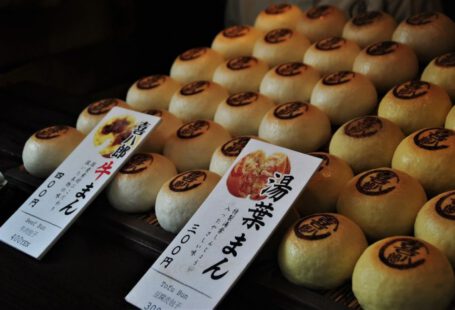Japan is a country steeped in rich cultural traditions, and one of the most significant customs is the act of gift-giving. This tradition holds deep meaning and is an integral part of Japanese society.
Gift-giving in Japan is not just a casual exchange of presents; it is a reflection of respect, gratitude, and social obligations. The act of giving a gift is seen as a way to express appreciation, maintain harmony, and strengthen social bonds.
One important aspect of gift-giving in Japan is the concept of reciprocity. When someone receives a gift, they are expected to reciprocate with a gift of equal or greater value. This reciprocity ensures a sense of balance and fairness in relationships. It is considered impolite to receive a gift without reciprocating, as it may create an imbalance and strain the relationship.
Another key element of gift-giving in Japan is the emphasis on the presentation and packaging of the gift. Japanese culture places great importance on aesthetics, and this is reflected in the way gifts are wrapped. The art of gift-wrapping, known as “tsutsumi,” is a meticulous process that involves using high-quality materials and intricate folding techniques. The presentation of the gift is as important as the gift itself, and it is believed that the effort put into wrapping the gift shows the giver’s sincerity and thoughtfulness.
In Japan, there are specific occasions and events that call for gift-giving. One such occasion is the New Year, known as “Oshogatsu.” During this time, it is customary to give gifts to friends, family, and business associates. These gifts, known as “Oseibo,” are often food items or household goods, symbolizing good wishes and appreciation for the recipient.
Another important event for gift-giving is “Ochugen” and “Oseibo.” These are mid-year and year-end gift-giving rituals, respectively. During these times, it is customary to give gifts to superiors, colleagues, and others who have provided assistance throughout the year. The gifts are a way to express gratitude and maintain harmony in relationships.
Weddings are also occasions that require gift-giving in Japan. It is customary to give money as a wedding gift, and the amount is usually presented in a special envelope called “shugi-bukuro.” The amount of money given depends on the relationship with the couple and is meant to help cover the wedding expenses.
Gift-giving in Japan is not limited to specific occasions; it is also common to give gifts when visiting someone’s home or as a gesture of appreciation. When visiting someone, it is customary to bring a small gift, such as a box of sweets or a bottle of wine. This act of giving is seen as a way to show respect and gratitude for the hospitality received.
In conclusion, the tradition of gift-giving in Japan is deeply rooted in respect, gratitude, and social obligations. It is a way to express appreciation, maintain harmony, and strengthen relationships. The concept of reciprocity, the emphasis on presentation, and the specific occasions for gift-giving all contribute to the unique and meaningful tradition in Japanese culture. Whether it is a formal event or a casual visit, the act of giving a gift in Japan is a reflection of the values and customs that have been passed down through generations.





